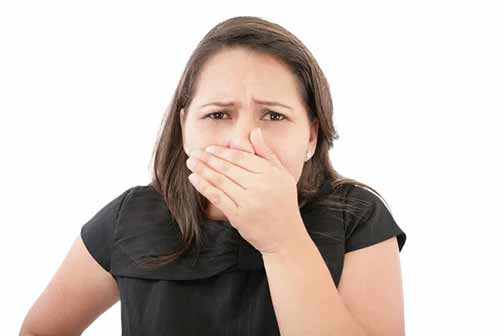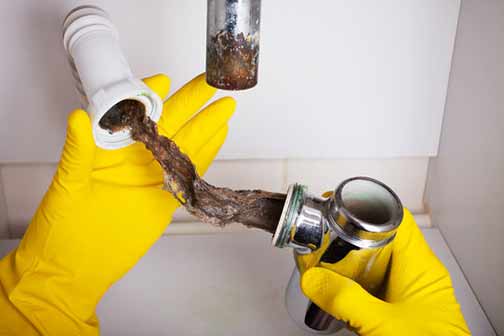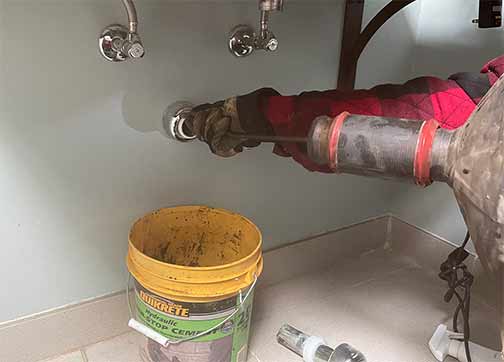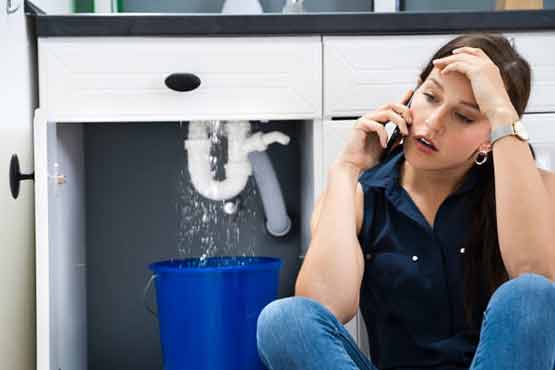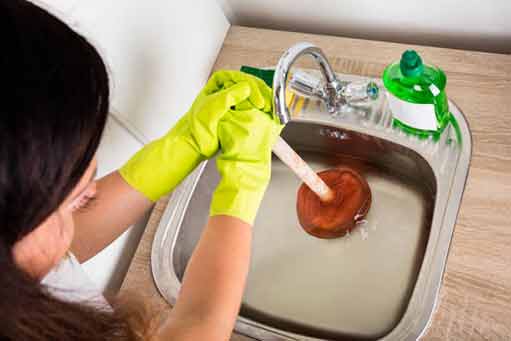
Drain blockages can be caused by a variety of factors, and understanding these causes is the first step toward preventing them. Common culprits include the accumulation of grease, hair, food particles, soap scum, and foreign objects that inadvertently make their way down the drain. Additionally, mineral buildup from hard water and the intrusion of tree roots into sewer lines can also lead to significant blockages. By identifying the specific causes of drain blockages, homeowners can take targeted actions to prevent them and maintain the efficiency of their plumbing systems.
Effective Techniques for Preventing Drain Blockages: Proactive Measures and Regular Maintenance
Preventing drain blockages requires a combination of proactive measures and regular maintenance. One effective technique is to use drain screens or strainers to catch debris before it enters the drain. These simple devices can significantly reduce the amount of hair, food particles, and other materials that can cause blockages. Additionally, running hot water down the drain after each use can help dissolve grease and prevent it from solidifying within the pipes. Regularly cleaning your drains with a mixture of baking soda and vinegar can also help keep them clear and free of buildup. Implementing these techniques can go a long way in preventing drain blockages and ensuring the smooth operation of your plumbing system.
Regular Maintenance Tips for Healthy Drains: Keeping Your Plumbing System in Top Shape
Regular maintenance is crucial for keeping drains in good working condition. One important tip is to avoid pouring grease or oil down the drain, as these substances can solidify and cause blockages. Instead, dispose of them in a separate container and throw them away in the trash. Another maintenance tip is to periodically flush your drains with hot water to help clear any buildup. Additionally, using a drain snake or auger to remove any debris that may be stuck in the pipes can prevent blockages from forming. By incorporating these maintenance tips into your routine, you can keep your drains healthy and free of blockages.
Professional Methods to Keep Your Plumbing in Top Shape: Advanced Techniques for Optimal Performance
While regular maintenance and preventive measures can go a long way in keeping your drains clear, there are also professional methods that can help maintain the overall health of your plumbing system. One such method is hydro jetting, which involves using high-pressure water to clean the inside of your pipes and remove any buildup or blockages. This technique is highly effective and can restore your pipes to like-new condition. Another professional method is sewer camera inspection, which allows plumbers to visually inspect the inside of your pipes and identify any potential issues before they become major problems. By utilizing these professional methods, you can ensure that your plumbing system remains in top shape and avoid costly repairs down the line.
Avoiding Costly Repairs with Proactive Measures: Protecting Your Plumbing Investment
Taking proactive measures to prevent drain blockages can save you from costly repairs in the future. One key measure is to educate household members about what should and should not be disposed of down the drain. For example, items such as coffee grounds, eggshells, and fibrous vegetables should be disposed of in the trash rather than the garbage disposal. Additionally, installing a water softener can help reduce mineral buildup in your pipes, which can lead to blockages. Regularly scheduling professional inspections and cleanings can also help catch any potential issues early on and prevent them from escalating into costly repairs. By taking these proactive measures, you can protect your plumbing system and avoid the expense and inconvenience of major repairs.
The Role of Proper Disposal Habits: Ensuring a Blockage-Free Plumbing System
Proper disposal habits play a crucial role in preventing drain blockages. It is important to be mindful of what goes down your drains and to avoid disposing of items that can cause blockages. For example, avoid pouring cooking grease, oil, and fat down the drain, as these substances can solidify and create blockages. Instead, allow them to cool and dispose of them in the trash. Additionally, avoid flushing items such as wipes, sanitary products, and cotton balls down the toilet, as these can cause blockages in the sewer line. By practicing proper disposal habits, you can help keep your drains clear and prevent blockages from occurring.
Using Natural Remedies to Prevent Blockages: Eco-Friendly Solutions for Clear Drains
Natural remedies can be an effective and environmentally friendly way to prevent drain blockages. One popular natural remedy is a mixture of baking soda and vinegar. Pouring a cup of baking soda followed by a cup of vinegar down the drain can help break down buildup and keep your drains clear. Another natural remedy is using boiling water to flush your drains, which can help dissolve grease and other debris. Additionally, using enzyme-based drain cleaners can help break down organic material in your pipes without the use of harsh chemicals. By incorporating these natural remedies into your routine, you can help prevent blockages and maintain the health of your plumbing system.
When to Call a Professional Plumber: Recognizing the Signs of Serious Plumbing Issues
While many drain blockages can be prevented and resolved with regular maintenance and natural remedies, there are times when it is necessary to call a professional plumber. If you experience recurring blockages, slow-draining water, or foul odors coming from your drains, it may be a sign of a more serious issue that requires professional attention. Additionally, if you are unable to clear a blockage using DIY methods, it is best to call a plumber to avoid causing further damage to your pipes. Professional plumbers have the tools and expertise to diagnose and resolve complex plumbing issues, ensuring that your plumbing system remains in good working condition. By knowing when to call a professional, you can address plumbing problems promptly and prevent them from escalating into costly repairs.
Educating Household Members: Promoting Awareness for Drain Health
Educating household members about proper drain care is essential for preventing blockages and maintaining a healthy plumbing system. Ensure that everyone in the household understands the importance of not disposing of inappropriate items down the drain. Provide clear instructions on what can and cannot be flushed or washed down the sink. This collective effort can significantly reduce the risk of blockages and keep your plumbing system running smoothly. By fostering a culture of awareness and responsibility, you can protect your drains from unnecessary strain and avoid potential plumbing issues.
The Importance of Regular Inspections: Catching Issues Before They Escalate
Regular inspections of your plumbing system are vital for identifying potential problems before they escalate into major issues. Schedule routine inspections with a professional plumber to assess the condition of your pipes and drains. These inspections can help detect early signs of wear and tear, corrosion, or blockages that may not be immediately visible. By addressing these issues promptly, you can prevent costly repairs and extend the lifespan of your plumbing system. Regular inspections provide peace of mind and ensure that your drains remain in optimal condition.
Choosing the Right Drain Cleaning Products: Avoiding Harmful Chemicals
When selecting drain cleaning products, it is important to choose options that are safe for your pipes and the environment. Avoid using harsh chemical cleaners that can corrode your pipes and cause long-term damage. Instead, opt for enzyme-based or natural drain cleaners that effectively break down organic material without harming your plumbing system. Additionally, be cautious of over-the-counter drain cleaning products that may provide temporary relief but can lead to more significant issues in the long run. By choosing the right drain cleaning products, you can maintain the health of your plumbing system and prevent blockages.
Understanding the Impact of Hard Water: Addressing Mineral Buildup
Hard water, which contains high levels of minerals such as calcium and magnesium, can contribute to drain blockages over time. These minerals can accumulate inside your pipes, leading to reduced water flow and potential blockages. Installing a water softener can help mitigate the effects of hard water by reducing mineral buildup. Regularly cleaning your faucets and showerheads to remove mineral deposits can also improve water flow and prevent blockages. Understanding the impact of hard water and taking appropriate measures can help maintain the efficiency of your plumbing system and prevent drainage issues.
The Benefits of Hydro Jetting: A Powerful Solution for Clear Drains
Hydro jetting is a professional plumbing technique that uses high-pressure water to clean the inside of your pipes and remove any buildup or blockages. This method is highly effective and can restore your pipes to like-new condition. Hydro jetting is particularly beneficial for clearing stubborn blockages caused by grease, mineral deposits, and tree roots. It is a safe and environmentally friendly solution that does not involve the use of harsh chemicals. By opting for a hydro jetting service, you can ensure that your drains remain clear and free of blockages, promoting the overall health of your plumbing system.

Hydro jetting is a professional plumbing technique that uses high-pressure water to clean the inside of your pipes and remove any buildup or blockages.
Sewer Camera Inspection: Identifying Hidden Issues
Sewer camera inspection is a professional method that allows plumbers to visually inspect the inside of your pipes using a small camera. This technique is invaluable for identifying hidden issues such as cracks, corrosion, and blockages that may not be immediately visible. By conducting a professional sewer camera inspections, plumbers can detect potential problems early on and take appropriate measures to address them. This proactive approach can prevent major plumbing issues and ensure the longevity of your plumbing system. Sewer camera inspection provides a comprehensive view of your pipes’ condition, allowing for accurate diagnosis and targeted solutions.
Addressing Tree Root Intrusion: Protecting Your Sewer Lines
Tree roots can pose a significant threat to your sewer lines, as they can infiltrate and cause blockages. The roots are attracted to the moisture and nutrients in the sewer lines, leading to cracks and damage. To address tree root intrusion, it is important to regularly inspect your sewer lines and take preventive measures. Installing root barriers and using chemical root inhibitors can help prevent roots from entering your pipes. Additionally, scheduling professional root removal services can effectively clear any existing root blockages. By addressing tree root intrusion, you can protect your sewer lines and prevent costly repairs.
Preventing Blockages in Kitchen Drains: Best Practices for Food Disposal
Kitchen drains are particularly susceptible to blockages due to the disposal of food particles, grease, and other debris. To prevent blockages, it is important to practice proper food disposal habits. Avoid pouring cooking grease, oil, and fat down the drain, as these substances can solidify and create blockages. Instead, allow them to cool and dispose of them in the trash. Use a drain strainer to catch food particles and prevent them from entering the drain. Regularly clean the strainer and flush the drain with hot water to dissolve any grease buildup. By following these best practices, you can keep your kitchen drains clear and prevent blockages.
Maintaining Bathroom Drains: Preventing Hair and Soap Scum Buildup
Bathroom drains are prone to blockages caused by hair, soap scum, and other debris. To maintain bathroom drains, it is important to use drain screens or strainers to catch hair and prevent it from entering the drain. Regularly clean the screens and remove any accumulated hair. Avoid using excessive amounts of soap and shampoo, as these can contribute to soap scum buildup. Periodically flush the drain with hot water to dissolve any residue. Additionally, using a mixture of baking soda and vinegar can help break down buildup and keep your bathroom drains clear. By maintaining bathroom drains, you can prevent blockages and ensure smooth water flow.
Dealing with Outdoor Drain Blockages: Keeping Your Yard Drains Clear
Outdoor drains, such as those in your yard or driveway, can become blocked by leaves, dirt, and other debris. To prevent outdoor drain blockages, it is important to regularly have your catch basin cleaned out and maintain these drains. Remove any visible debris and use a hose to flush out the drain. Installing a drain cover or grate can help prevent large debris from entering the drain. Additionally, ensure that your yard is properly graded to prevent water from pooling around the drains. By keeping your outdoor drains clear, you can prevent blockages and ensure effective drainage in your yard.
The Importance of Timely Repairs: Addressing Plumbing Issues Promptly
Timely repairs are crucial for preventing minor plumbing issues from escalating into major problems. If you notice any signs of a potential blockage, such as slow-draining water or gurgling sounds, it is important to address the issue promptly. Ignoring these signs can lead to more severe blockages and costly repairs. Contact a professional plumber to diagnose and resolve the issue before it worsens. Timely repairs can prevent further damage to your plumbing system and ensure that your drains remain clear and functional.
Creating a Maintenance Schedule: Consistency is Key
Creating a maintenance schedule for your plumbing system is essential for preventing blockages and ensuring its longevity. Establish a routine for regular drain cleaning, inspections, and maintenance tasks. Keep track of when these tasks are performed and set reminders for future maintenance. Consistency is key to maintaining a healthy plumbing system. By adhering to a maintenance schedule, you can prevent blockages, catch potential issues early, and ensure the smooth operation of your drains.
Conclusion: Mastering the Flow for a Blockage-Free Plumbing System
Preventing drain blockages requires a combination of proactive measures, regular maintenance, and proper disposal habits. By understanding the common causes of blockages and implementing effective techniques, you can keep your drains clear and avoid costly repairs. Regular inspections, professional methods such as hydro jetting and sewer camera inspections, and timely repairs are essential for maintaining the health of your plumbing system. Educating household members, using natural remedies, and practicing proper disposal habits further contribute to a blockage-free plumbing system. By mastering the flow and taking proactive measures, you can ensure the smooth operation of your drains and protect your plumbing investment.


